
As we move closer towards World Vegan Day, we’re going to be addressing some of the biggest myths surroundings veganism. We’ll also be showing that not only is it a healthy and humane way to live, but you can also perform at an elite level on a plant-based diet, with many world-class athletes crediting increased recovery time and improved performance to this sustainable lifestyle.
What's in this article
- The Athlete Question
- 1. David Haye – Boxer
- 2. Barny du Plessis – Bodybuilder
- 3. Nate Diaz – Mixed Martial Artist
- 4. Jermaine Defoe – Footballer
- 5. Lewis Hamilton – F1 Racing Driver
- 6. Kendrick Yahcob Farris – Weightlifter
- 7. Venus Williams – Tennis Player
- 8. Patrick Baboumian – Strongman
- 9. Alex Morgan – Footballer
- 10. Carl Lewis – Track and Field Athlete
- 11. Kyrie Irving – Basketball Player
- 12. Colin Kaepernick – Football
- Some More Vegan Questions Answered
- What are the health implications of animal products in our diet?
- What is the environmental impact of the meat and dairy industry?
- Can you get enough protein as a vegan?
- Couldn’t there be health implications we don’t know about yet?
- What other ways can I learn about Vegan diets?
- When is World Vegan Day?
Despite all evidence to the contrary, there are still many who believe that a vegan diet cannot be every bit as healthy as their meat-and-dairy-eating counterparts. Much like many sink their head into the sand when it comes to the reality of factory farming or the environmental impact of the meat industry, a lot of people simply refuse to listen to or accept the evidence surrounding the nutritional benefits of a vegan.
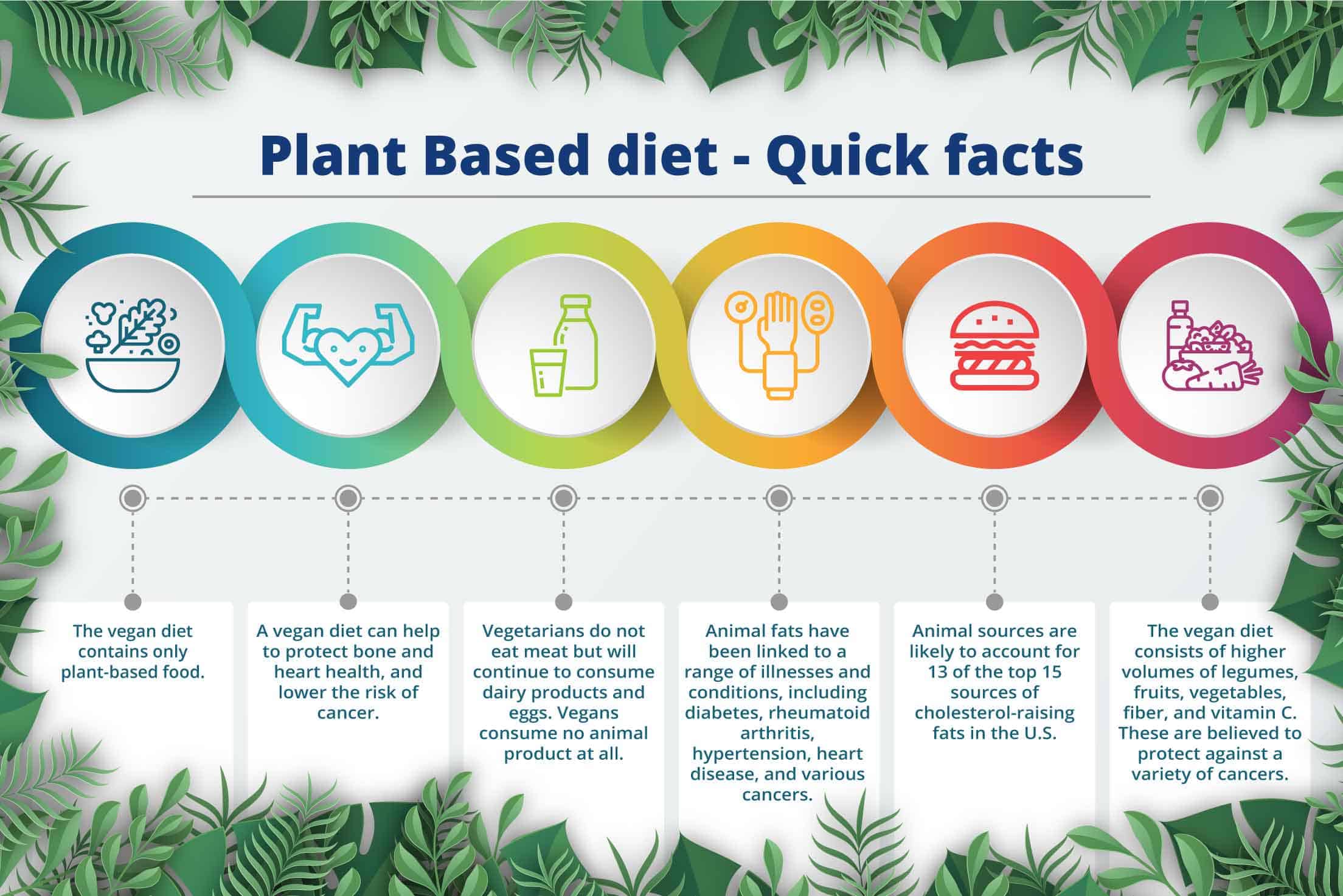
In fact, a recent study in The Journal of Nutrition supports the claim that a vegan diet is healthier, thanks to lower levels of saturated fat and higher levels of antioxidants. This can lower the risk of cancer and Type 2 diabetes, as well as improving heart health.
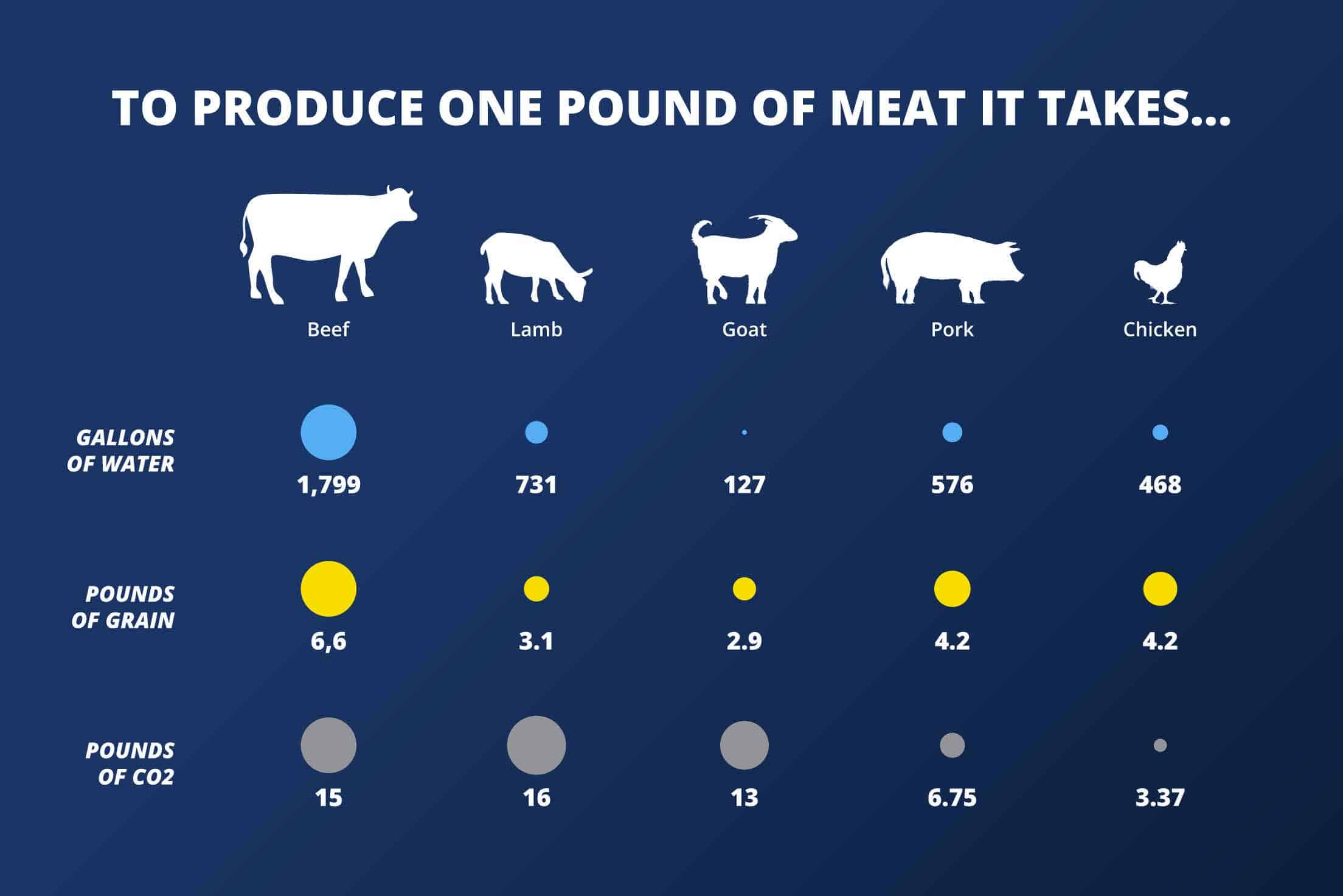
The Athlete Question
Many now accept that adopting a vegan diet is healthy way of life. But some still have reservations as to whether an athlete could get by on plants alone. For some reason, people just can’t seem to shake the idea of Rocky guzzling down a milkshake of raw eggs from their mind.
While graphs and nutritional data provide statistical evidence, one of the most effective arguments is to show you some of the highest profile elite vegan athletes who prove, without a doubt, that you can thrive without the need for animal products.
1. David Haye – Boxer
No doubt stemming from the protein myths which surround veganism (more on that shortly), many people wrongly believe that veganism’s main weakness – no pun intended – for athletes is that they will suffer from a lack of strength compared to their meat-and-dairy-eating opponents.
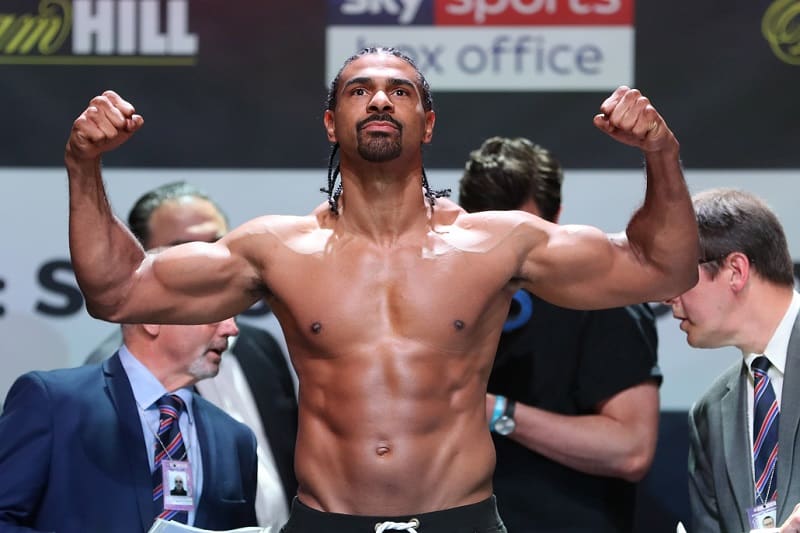
No doubt stemming from the protein myths which surround veganism (more on that shortly), many people wrongly believe that veganism’s main weakness – no pun intended – for athletes is that they will suffer from a lack of strength compared to their meat-and-dairy-eating opponents.
2. Barny du Plessis – Bodybuilder
If somehow an athlete the calibre of David Haye didn’t convince you of the strength you can attain from a vegan diet, then one look at bodybuilder Barny du Plessis should do the trick. He didn’t start his bodybuilding career as a vegan, but by 2013, a whole host of health concerns had forced him to retire. It was only through adopting a vegan lifestyle that his health dramatically improved to the point where he felt he could train and return to the stage. And return he did, becoming the first vegan bodybuilder to win the Mr Universe title in 2014.
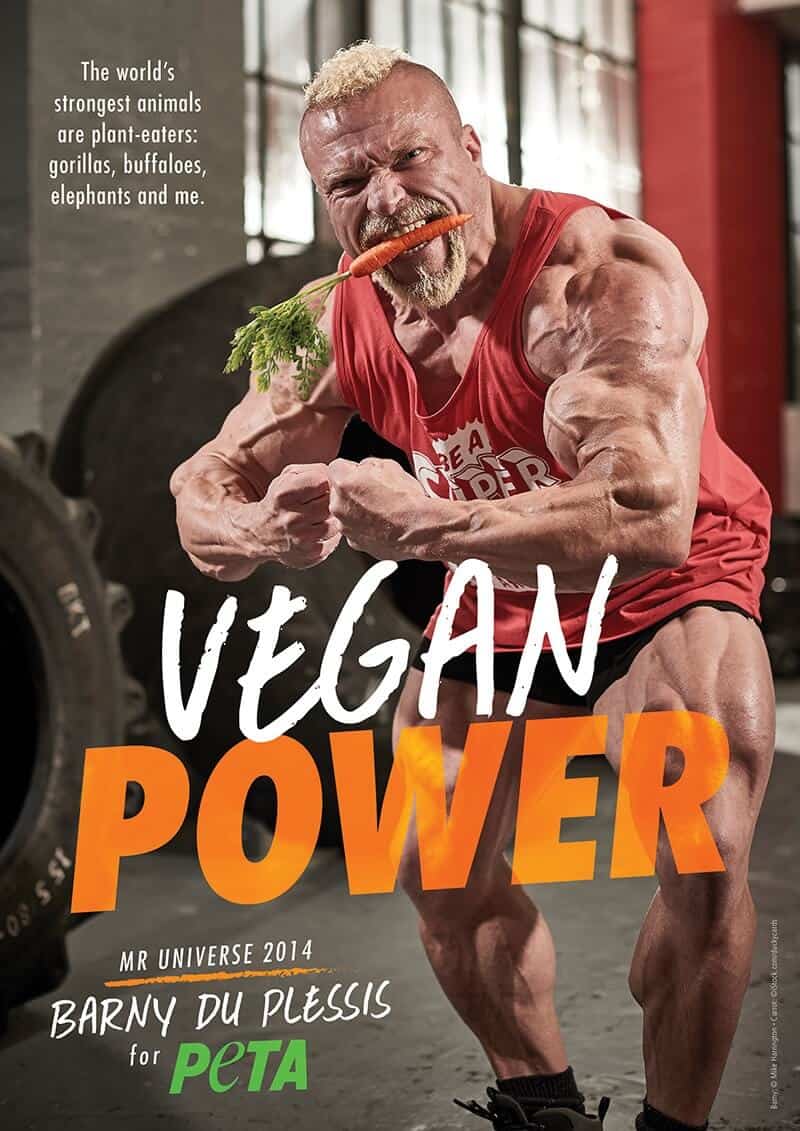
Barny du Plessis isn’t a bodybuilding champion in spite of being a vegan: he is a bodybuilding champion because he is a vegan. And it’s not just about the heath benefits for Barny either. He’s stated that it’s his goal to show the world that you can be healthy “without exploitation of innocent creatures”.
3. Nate Diaz – Mixed Martial Artist
Our examples so far have been of athletes that turned to veganism later in their career, while Nate Diaz has been showcasing the excellence of vegan athletes since he turned 18. He didn’t need to look far for inspiration, as his older brother – a former welterweight champion himself, Nick Diaz – had already made the change to great success.
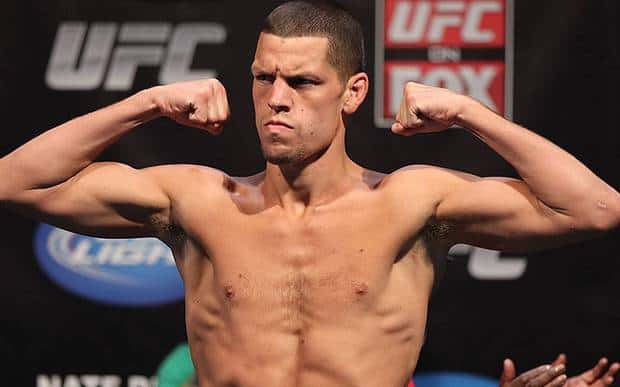
It’s not just the strength and stamina benefits of veganism which Nate Diaz attributes to his success either. He also believes that veganism has improved his intelligence and concentration in the ring: a sentiment also expressed by many of his vegan . He claims that these benefits from his vegan diet played a crucial role in his victory over Conor McGregor.
4. Jermaine Defoe – Footballer
Speaking of athletes which require a mixture of intelligence and physical fitness, Jermaine Defoe is one of the most successful players in English – and now Scottish – football. Currently on loan to Rangers, Jermaine Defoe, much like Barny du Plessis and David Haye, turned to the vegan diet in March 2017 in order

His goal against Brighton gave Bournemouth their first victory in its entire season, and he scored his debut goal for Rangers against Kilmarnock, showing he hasn’t missed a step since changing his diet.
5. Lewis Hamilton – F1 Racing Driver
Just like our last pick, Lewis Hamilton also made the change to a vegan diet in 2017, although it was the impact of the meat industry on the environment and the cruelty involved which made him take the dietary leap.

His performance since then clearly backs up what so many other athletes have been saying about the vegan diet and its positive affects on physical and menta endurance, as Hamilton subsequently won his fourth and fifth world title in the 2017 and 2018 season.
6. Kendrick Yahcob Farris – Weightlifter
We’re sure that some naysayers will be trying to pick holes in our assertion that you can be every bit as strong on a vegan diet as an animal-product diet by pointing out that, although things like boxing and bodybuilding are strength related, they are not straightforward tests of strength. Well, what about weightlifting? There is surely no fairer way of comparing an athlete’s pure strength than that.
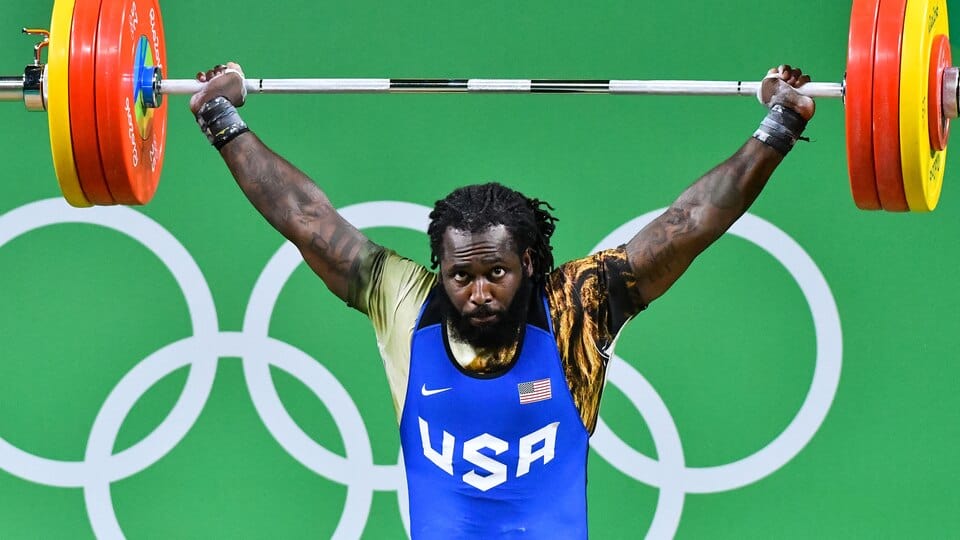
Take Kendrick Yahcob Farris, an American Olympic weightlifter who competed in the 2016 Olympics. He also broke the U.S record during the Olympic trials, lifting a total of 831 pounds. He’s living proof that even when talking about elite level strength, a vegan diet is every bit as good, if not better, than the alternative.
7. Venus Williams – Tennis Player
Take Kendrick Yahcob Farris, an American Olympic weightlifter who competed in the 2016 Olympics. He also broke the U.S record during the Olympic trials, lifting a total of 831 pounds. He’s living proof that even when talking about elite level strength, a vegan diet is every bit as good, if not better, than the alternative.

Her journey to veganism is also not a typical one, as she was advised by doctors at that time that a raw vegan diet would help relieve the symptoms of her autoimmune disease. She credits this with allowing her to maintain her performance on the court through and following her diagnoses of Sjogren’s syndrome. Her return in 2012 is one of the greatest comebacks in tennis history, culminating in her victory at the Dubai Tennis Championships in 2014, where she became the seventh oldest women to win a WTA singles title at the age of 33.
As late as 2017, she reached both the Australian and Wimbledon finals. It is hard to imagine any of this happening without the change in diet and thus relief of symptoms now nearly a decade ago.
8. Patrick Baboumian – Strongman
Although Patrick Baboumian can’t claim the Olympic credentials of American weightlifter Kendrick Yahcob Farris, he is one of the most recognisable vegan strongmen in the world and holds perhaps even better evidence of how veganism can provide all the strength anyone, even elite athletes, could possibly need.

Patrick Baboumian holds the world record for most weight ever carried by a human being when he travelled 10 metres with a 1216 pounds – yes, you read that right – yoke in Toronto, Ontario. How could you possibly deny the strength of the vegan diet when the world record holder for most weight lifted ever in recorded history is a vegan. He also holds the world log lift record, and has done for a decade, having set the record in 2009.
9. Alex Morgan – Footballer
One vegan athlete that has been hitting all the headlines as of later is star footballer and recent World Cup winner Alex Morgan. She’s also the most recent on our list to make the change, having made the switch in 2018. This shows that the trend of major athletes switching to a vegan diet is one which is only going to get bigger and more frequent as people wake up to the realities of the meat and dairy industries.

Her continued success since that dietary change really speaks for itself. She won the US Soccer’s Female Player of the Year award in 2018 and topped that off with her incredible performance in the 2019 FIFA World Cup.
10. Carl Lewis – Track and Field Athlete
From one of the newest vegan converts to one of the oldest in the world of sports, Carl Lewis can be credited with proving to a generation that you didn’t need to eat meat or dairy products to achieve great things in the world of sports. In fact, he credits his incredible results in 1991 to the vegan diet he adopted the year before. That year, he completed what many consider to be his greatest ever performance in the 1991 World Championships in Tokyo, when he reclaimed his world record, clocking in a time of 9.86s in the 100 metres final.
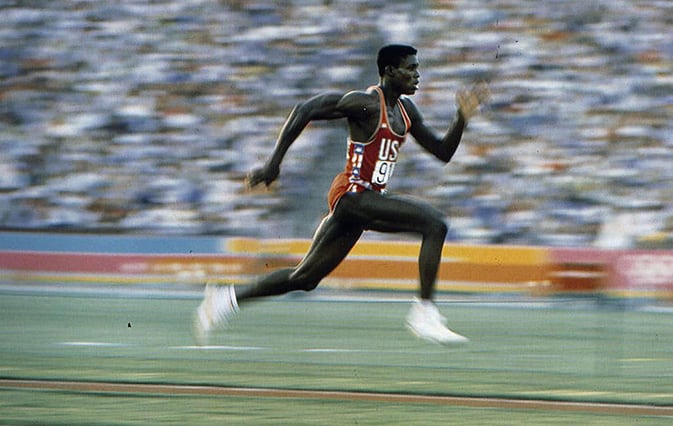
His follow up long jump showdown against Mike Powell is considered by many to be the greatest example of the discipline in the history of the sport. To give you an idea of just how huge it is for that year to be considered the home of his greatest achievement, consider that this is an athlete that has won nine Olympic gold medals and 10 world championships. And his finest hour came the year after he became vegan.
11. Kyrie Irving – Basketball Player
As you can already plainly see from the examples we’ve given, people go vegan for a wide variety of reasons. Kyrie Irving, one of the most famous names in basketball, actually came around to veganism through the Netflix documentary “ which focuses on the impact of the meat, dairy and even pharmaceutical industries on our health. Irving certainly believes that his performance and health have drastically improved since changing his diet, telling the BBC that he attributes his famously fast dribbling ability to his plant-based diet.

He currently plays for the Brooklyn Nets in the National Basketball League and made good on his selection as Rookie of the Year in 2011, becoming a six-time NBA All Star and even winning the NBA Championship as part of the Cavaliers. In fact, his three-point field goal with under a minute to spare in a tied game made him the hero of that Championship victory. On top of that, he was named the NBA All-Star Game Most Valuable Player in 2016, has played for his national team and competed in the 2016 Summer Olympics.
12. Colin Kaepernick – Football
Unlike our other 11 examples, we don’t actually know why star football player Colin Kaepernick became a vegan, as the athlete has not spoken extensively about veganism. His impact remains extensive in the vegan community though, considering he is the inspiration behind the “Colin Kowpernic” pro-Vegan New York City Subway ads. Colin Kowpernick is a rescued dairy calf named after the NFL Quarterback.
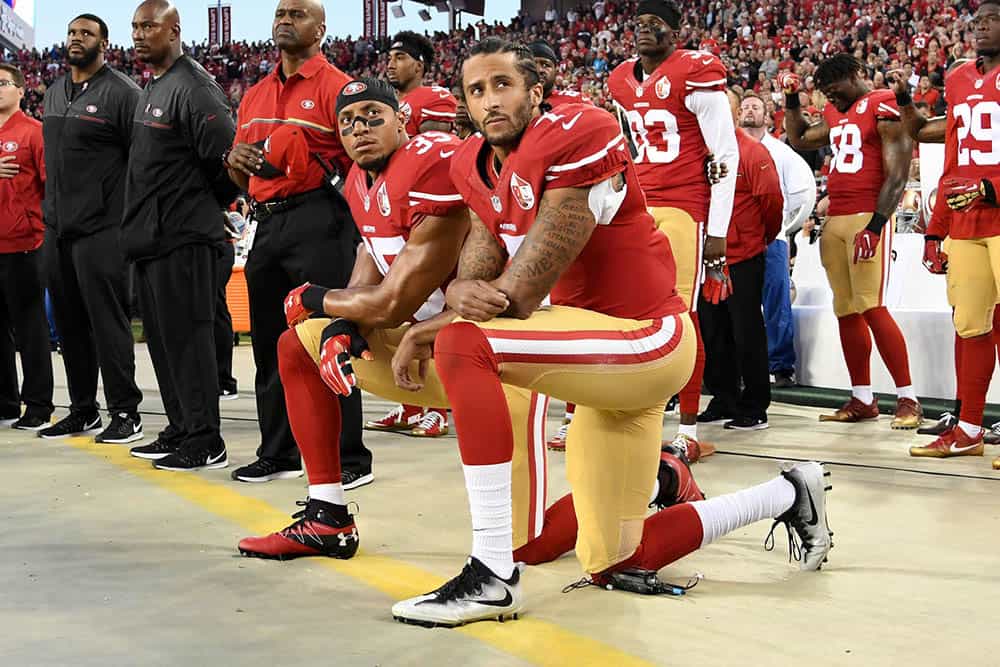
And who knows whether it was the realities of the dairy industry – which the campaign aims to create greater awareness of –, the environmental impact, the health implications, or any of the many other excellent reasons to make the change which convinced Colin Kaepernick to adopt a vegan diet. In all honestly, it could be all of the above: any alone would make an excellent reason for dietary change.
It certainly has been positive for his athletic career. Colin Kaepernick emerged as an outstanding player early on, becoming Offensive Player of the Year twice and still holds the record as the only player in that division to achieve 10,000 passing yards and 4,000 rushing yards. He then moved on to the professional leagues and led his team, the San Francisco 49ers, to their first Super Bowl since 1994. With Kaepernick at the helm, they also competed in a NFC Championship Game. He’s actually more known for activism against racial inequality in the United States than his vegan lifestyle, famously taking the knee during the national anthem as a protest against systemic oppression.
Some More Vegan Questions Answered
Despite all these great athletes showing just how much you can achieve through a vegan diet, some still aren’t convinced and have other questions about veganism and how it works. We are going to go through some of the most common questions to give you some more context on why the vegan diet is so effective for athletes, and of course, for the average person who wants to be healthier as well.
What are the health implications of animal products in our diet?
We are being told more and more to cut down on the amount of meat that we eat, and it’s for a good reason. Meats can be extremely high in fat, particularly saturated fat. Too much of this kind of fat can raise cholesterol levels in the blood which can also raise our risk of heart disease.
One of the biggest factors in this issue is a chemical known as Trimethylamine N-oxide, which is as nasty as it sounds. Research suggests that this chemical interacts with blood platelets and increases the risk of clot-related medical events like heart attacks or strokes. Essentially, it’s not something you want hanging around your arteries, and a study showed that when people ingested 25% of their calories from red meat over a month, their TMAO levels tripled.
The good news is this was reversible. When they moved off the diet, their TMAO levels returned to normal or decreased significantly in the same time span. So, the important thing to note here is that although eating animal products can have health consequences, dietary changes can often reverse those consequences. This information is the product of a lot of different studies, and the National Institutes of Health have helped compile the most relevant information here.
On top of that, there’s the simple fact that people who eat meat are much more likely to be overweight than meat-eaters. In fact, vegans are, according to this article by Dr.Deborah Wilson on the PETA website, 10 to 20 pounds on average lighter than meat-eaters. Being overweight increases your chances of getting cancer, heart disease and diabetes, to name but a few examples.
There’s also the added risk of bowel cancer, particularly in relation to red and processed meat. This comes from a 2011 report called Iron and Health, which as its name suggests, wasn’t initially about red meat or processed meat. It examined the impact of a high iron diet, and since they are both naturally high sources, they ended up being examined. The research concluded that it is likely that a lot of red and processed meat increases the risk of bowel cancer.
Furthermore, there’s a much larger risk of food poisoning, such as from Salmonella and Campylobacter, with meat products than with plant-based alternatives. Our bodies aren’t actually very good at processing meat, meaning that if we fail to cook or handle it correctly, we could easily become violently ill. Put it this way, if you touch a bell pepper and forget to wash your hands, you’re unlikely to need to spend the next day in the bathroom.
What is the environmental impact of the meat and dairy industry?
It’s actually so vast that the full devastation caused by the meat industry probably won’t be known for quite some time. Nonetheless, if your own health isn’t enough to convince you to make the switch, perhaps the health of the planet – and the happiness and prosperity of future generations, including your own relations – will.
One misjudged counterargument to this is that vegan foods themselves have an environmental impact too. And while this is true – all food production has some kind of impact – it is utterly dwarfed by the impact of animal products. The reason for this is twofold. Firstly, the environmental impact of cereal production is much smaller in general, and most of the cereal production actually goes to feed livestock. This means that whatever impact a vegan diet has is already accounted for within the impact of animal products.
It is considered to be the single biggest way to reduce your environmental impact on the environment, with 80% of farmland being used for livestock producing just 18% of the calories we consume. For reference, beef uses up to 105kg of greenhouse gases per 100 grams of meat, while a 100-gram bag of almonds uses around 1.2 grams.
If the world were to adopt a vegan diet, global farmland could be reduced by 75% and would drastically reduce biodiversity loss, deforestation, as well as land and water degradation.
Can you get enough protein as a vegan?
This is a question so common, we’re sure that many vegans are recoiling at reading it yet again. Still, it is one that persists. Obviously, you can’t be a world-class athlete and get inadequate protein, so our example of athletes should answer that question. Still, if you’re wondering where they get that protein from, the answer is from a wide variety of
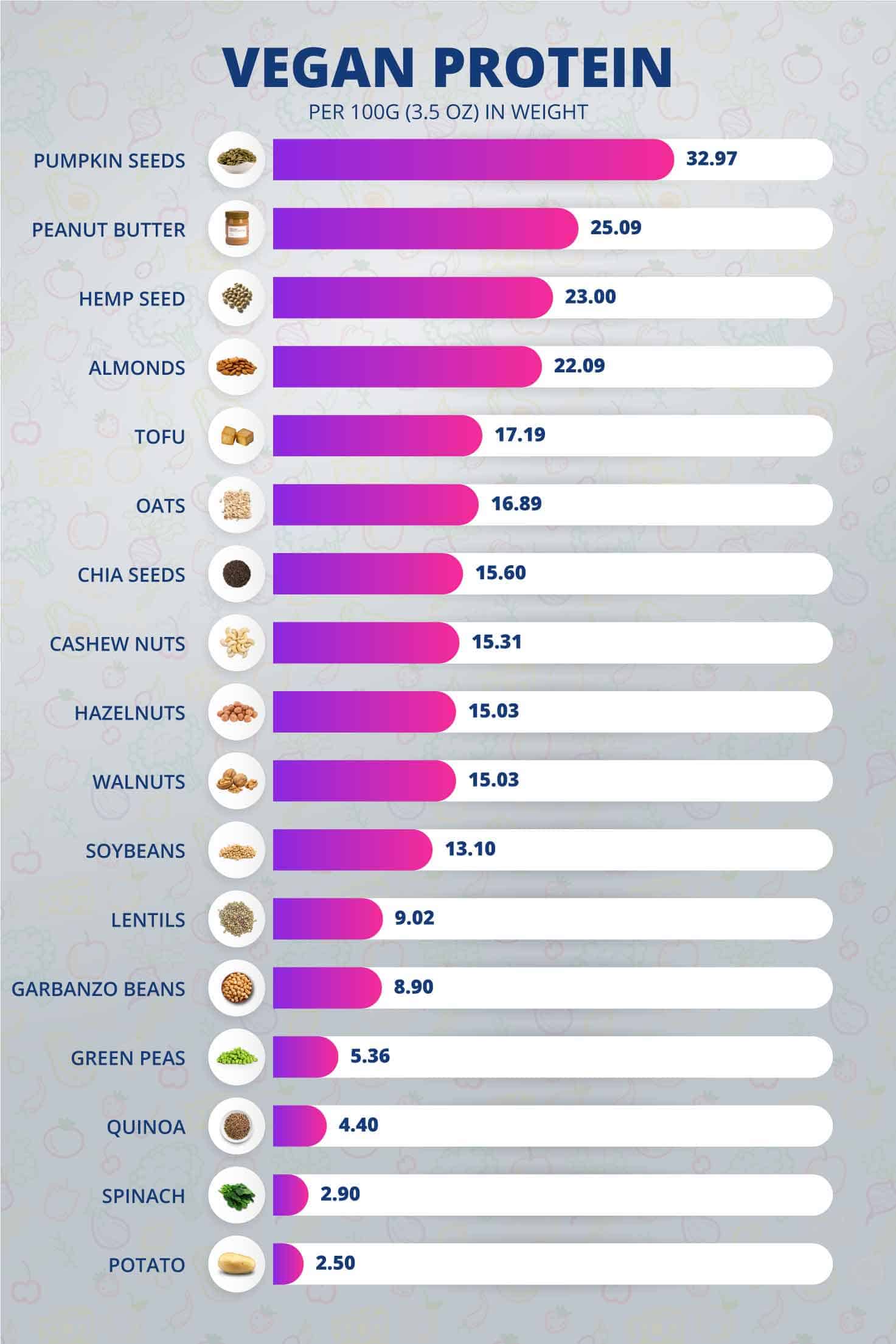
Vegans aren’t stuck with just a couple of protein examples, meaning that even if you have some allergies or simply don’t like certain types of foods, there should still be plenty of protein options to choose from. These include pulses, such as things like beans, peas and lentils, quinoa, nuts and seeds, tofu, oats, brown rice, various grains and even vegetables like asparagus, broccoli, sweetcorn, spinach and more.
Keep in mind that a person weighing 74 kg would only need 55 grams of protein a day, meaning that most of us are already getting far more than we need, and could easily reach that amount, and then some, under a vegan diet.
Couldn’t there be health implications we don’t know about yet?
One argument that is continually made against veganism is that we are yet to fully research and understand the full health impacts of such a drastic dietary change. And in fairness, this is true to an extent. There’s still plenty to be explored about the impact of veganism on the human body, with a lot more work to be done.
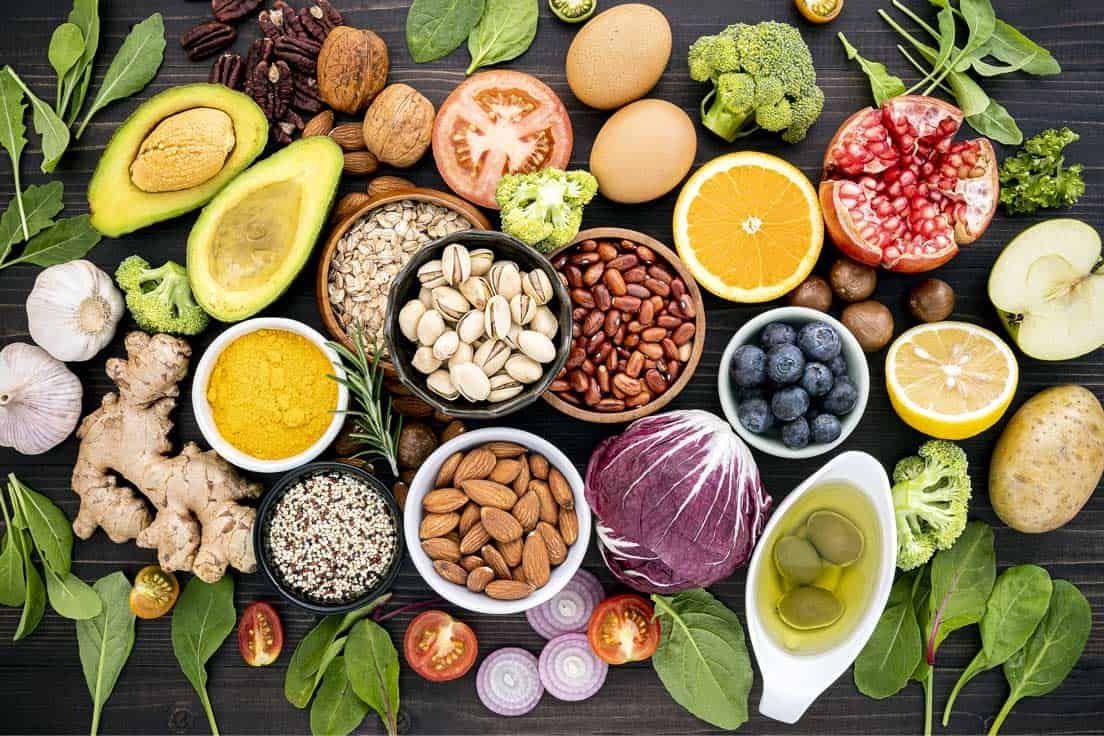
And this additional research is important. For example, it’s a great thing that there are so many meat alternatives out there. However, not all of them are necessarily as healthy as others. Beyond Meat burgers for instance, have come under scrutiny for the amount of processed ingredients they contain. More research is always useful when it comes to understanding how different foods affect our bodies.
However, it’s not quite the slam dunk of a rebuttal these detractors seem to believe it is. The fact is we’re still a long way from fully understanding how different diets affect us in general.
The vegan diet isn’t particularly notable in that regard, nor can this be viewed as a reason for treating it with any more suspicion. It isn’t particularly new either.
Western countries might view a plant-based diet as a recent revelation but in reality, it has been a way of life
Not only that but the research we do have about the vegan diet is overwhelmingly positive. There’s no particular reason to believe that further results would be negative. Plus, it would seem likely that more positive results, based on current trends, than negative ones would follow.
Consider it this way, say we have one diet that is known to be unhealthy through extensive research – for example, one that is high in red meats – and another which is known as healthy, also through extensive research. Our understanding of both can be further expanded upon.
All diets are complicated in terms of health, hence why ongoing research is always needed. But why would this lead us to believe that the example which we already know is unhealthy would be shown to be healthier than initially thought, and the example we already know is healthy would be shown to be less healthy than initially thought, through further findings? The only person who could come to such a conclusion is surely one with either a quite clear and deep bias, or someone who has been fed misleading information.
To put it simply, can we know more about veganism and its affect on our bodies? Of course, you could say the same about any diet. But this does not mean that the known health benefits of the diet should be dismissed.
If you’re considering changing to a more sustainable lifestyle, then events like World Vegan Day and Veganuary invite you to try it out for yourself to see just how easy and delicious it can be.
What other ways can I learn about Vegan diets?
There’s a whole world of information out there when it comes to Vegan diets. There are of course articles like this one, which can provide all kinds of fascinating facts and insights. For instance, did you know that in Ancient Rome, gladiators were mostly vegetarian? Or that Gloucestershire is home to (as far as we know) the world’s first vegan football club?
And of course, for a more in depth look you can dive deep into medical studies, which provide evidence for a whole host of benefits to reducing animal products in our diets. For example a study by the University of Maryland in Baltimore showed that vegetarians had a 11% higher absolute RMR and other studies also suggest that vegetarians burn more fat than omnivores. There’s even evidence around the benefits of specific plants, like beetroot juice/spinach extract and sports performance. In fact, studies suggest that a vegan diet is more effective at reducing blood pressure than running thousands of miles a year.
Perhaps most impactful of all on a personal level is the world of film, with the likes of Game Changers and Earthlings converting countless people over to a vegan diet. The latter is probably the most notorious for its shocking content, but the former actually provides the most insight from a dietary perspective.
Among the issues discussed include evidence that B-12 is far from a vegan-only issue, a dispelling of the myth that our teeth are built for meat and instead providing proof that they are actually built to grind plants, statistics that show that the average vegan gets 70% more protein than their daily recommended needs, and also evidence showing how plants can speed recovery. If you want to get an in depth and powerful look at the health impacts of a vegan diet in comparison to a meat eaters’ diet, there’s few better examples.
Other films that can help educate about diets and the effect of the meat and animal products industries include What The Health, Cowspiracy and Food Inc to name but a few.
When is World Vegan Day?
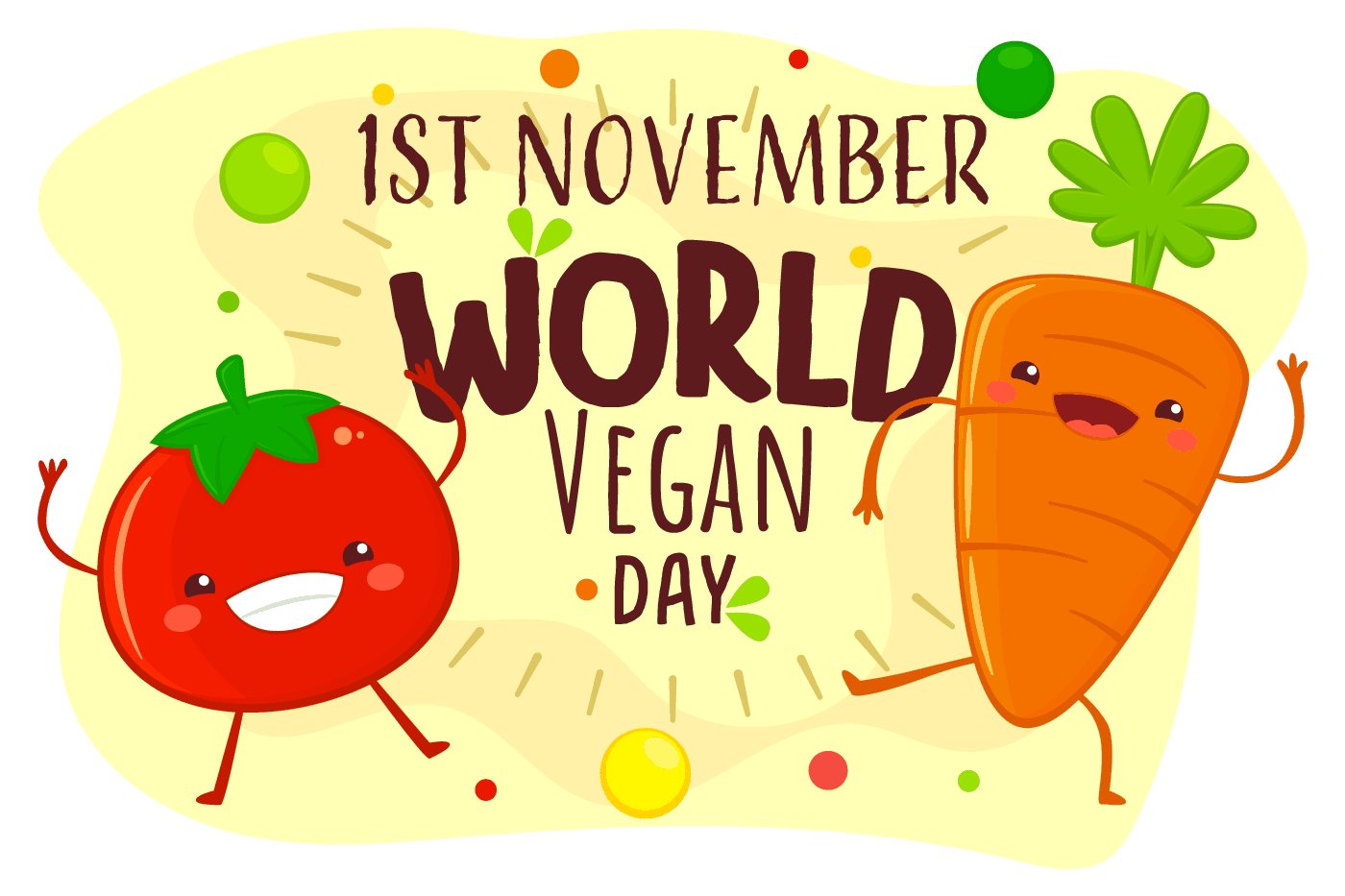
If you are a vegan and want to celebrate all the good and the potential these changes have to the world – or if you are someone looking to make the change to adopt a vegan lifestyle – then you’ll be happy to know that World Vegan Day will take place on the 1st of November this and every year. There are events throughout the world to help make this day special and you can find out how to get involved by Googling what events are available in your area.

![Top 12 Vegan Athletes vs. Omnivores [w/ Surprising Results!]](/wp-content/themes/PBA/images/popup-close.png)
